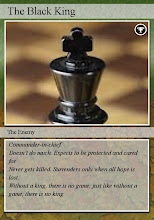I think it's a very comforting thought to find sources of reputable information available to the public on the web, given that there is so much information floating out there that, given its lack of credentials or its unknown reputation, has the potential to mislead its users or to altogether mislead an audience in order to forward an agenda.
The use (or lack thereof) of this kind of information sources makes us library and information professionals to think about ways to provide information education to those who seek information on the Internet. Given the abundance of information, in various degrees of legitimacy and authenticity available out there, information literacy is becoming a most important task for us librarians.
Seeing the lack of information literacy as a problem, many would be inclined to suggest imposing regulatory practices on the Internet. Many wish that the information posted to the public could be controlled in some way as to allow only veritable, reputable information to be published. The truth of the matter is, part of the huge success of this form of communication and information dissemination is its freedom. Anyone with enough computer-savvy can publish anything of their choice, and many see this medium as an idealized platform for communication. I for one think that regulations and policing would destroy the internet as we know it. A more feasible option would be to educate the public on what is good, dependable, reliable information and what is opinion, musings, or agenda driven.
Our task as librarians is to educate the public, as well as to make "good" information available for our patrons.
Saturday, October 10, 2009
Subscribe to:
Post Comments (Atom)


No comments:
Post a Comment